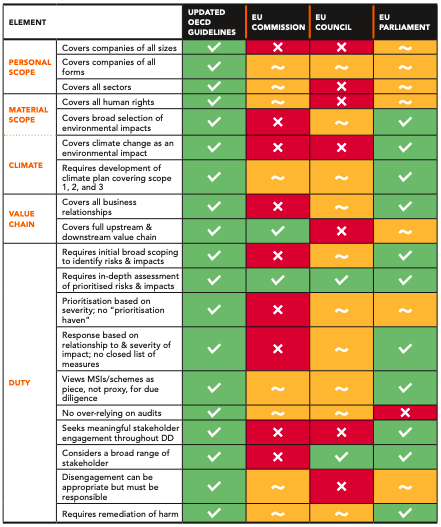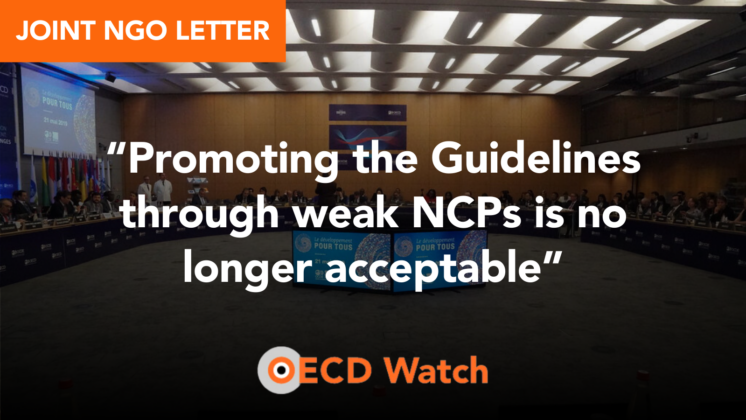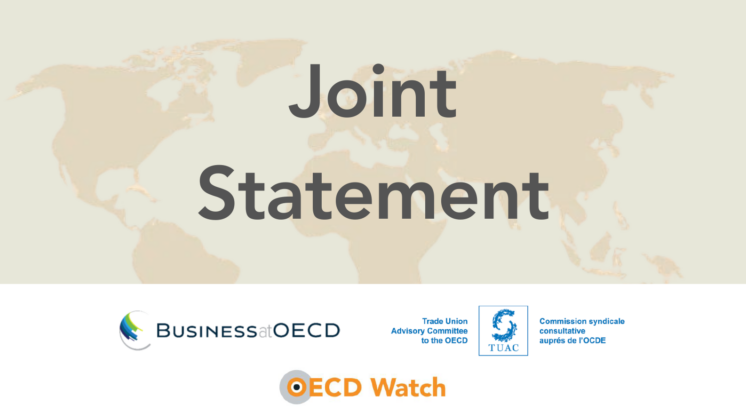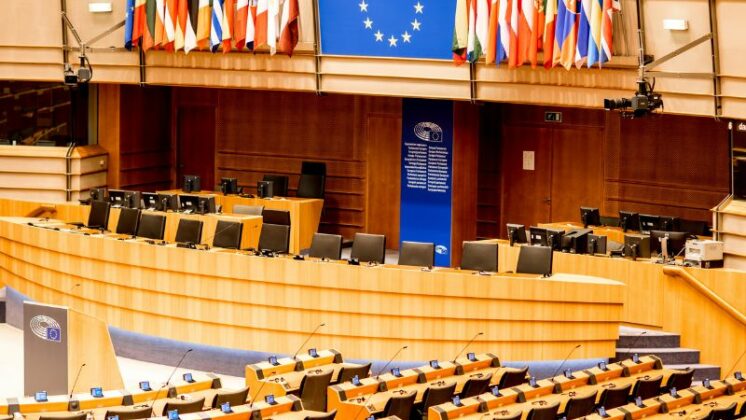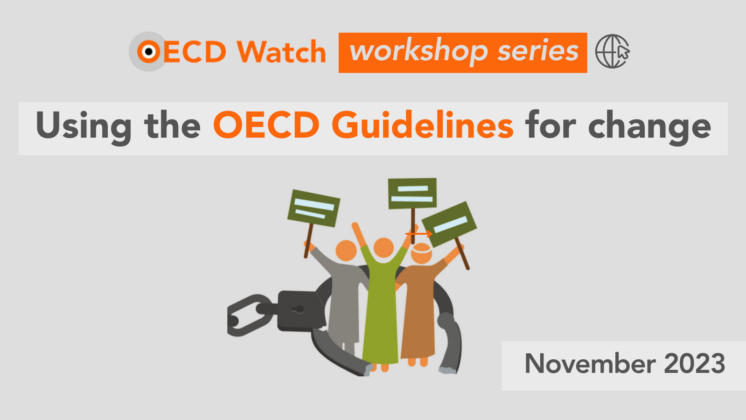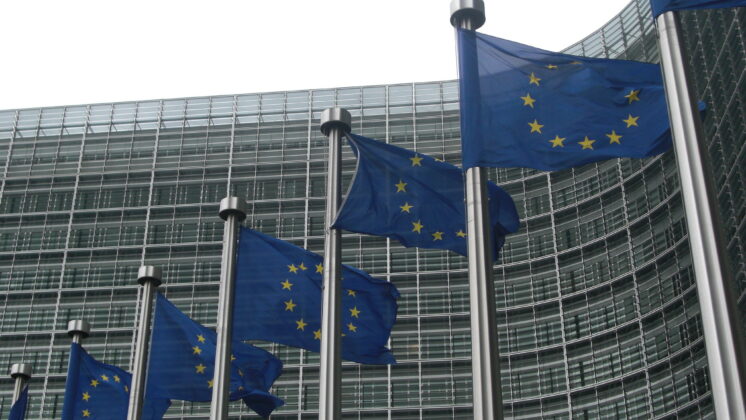Why and how to align the draft EU Corporate Sustainability Due Diligence Directive with the OECD Guidelines
The three European Union (EU) institutions – the Commission, Council, and Parliament – have begun tripartite negotiations to reconcile their positions for a corporate due diligence directive (CSDDD). Lawmakers, businesses, and civil society alike seek impactful and workable due diligence that avoids a proliferation of conflicting expectations for enterprises. The key to this is ensuring coherence between the proposed CSDDD and existing authoritative international norms on due diligence like the OECD Guidelines. In this paper, OECD Watch analyses how closely the three EU institutional positions align with the Guidelines on four overarching topics of concern:
1. Personal scope of covered enterprises;
2. Material scope of human rights and environmental impacts, including climate change;
3. Value chain scope over related business relationships; and
4. Due diligence duty expected of corporations.
While none of the three EU institutions’ position is fully in line with the OECD Guidelines, OECD Watch finds that the position held by the European Parliament shows the closest alignment with the updated OECD Guidelines.
OECD Watch recommend that trialogue negotiators select elements of the three positions that maximise alignment with the updated OECD Guidelines, drawing most heavily from the Parliament’s position. By doing this, legislators can avoid a proliferation of conflicting norms and laws and strike the right balance between providing companies and rightsholders with sufficient legal certainty while ensuring the due diligence duty remains practical, proportionate, and responsive to real human rights and environmental risks and impacts.
read more less
